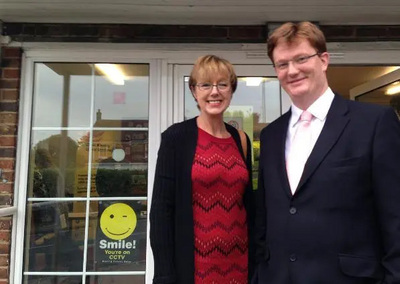What price austerity now?

I hate to make a party political point (he lied) but recent news articles tell us that not only has GDP been above pre-crisis levels since 2013, but GDP per capita has also just returned to those levels too, which is more important. The point is that the austerity-hating Scottish National Party managed to oust Danny Alexander, in May, even though he had been one of the leading architects of the strategy which put the entire country back on track.
That the SNP wanted to replace a leading Lib Dem with one of their own is understandable; that the Scottish people fell for it suggests a level of economic credulity which I, for one, had not associated with their otherwise excellent educational system. Perhaps this is more of a tribute to the efficacy of rhetoric and spin than to sound judgement.
My rant being over, I want to move on to some of the possible implications of this boost to the economy that represents the fine work done by the coalition, with the steadying influence of the Lib Dems, in putting right the mess created by poorly regulated banking activities and overspending during the previous 13 years.
Interest rates likely to rise
As we have already been told, interest rates are likely to start rising sooner, rather than later. For some this will be a matter of deep concern, as the cost of borrowing, especially on mortgages starts to rise. The impact will be gradual, so nobody should panic too quickly and, importantly, the vast majority of those with mortgages are likely to be in work and, as we know, pay is rising faster than inflation. So, hopefully, the impact of rising interest rates should not be too severe.
The other group to be affected by higher interest rates will be savers who have, for seven years, suffered historically low rates of return. Of course, the majority of savers are probably retired, people who have saved throughout their working lives only to find their income slashed by 75% since 2008. For these people, who have no other way of increasing their income, the rise will come as a welcome relief - albeit very slowly.
Can he banks be trusted to pass on the benefit?
One question that remains, however, is whether the banks will increase the rates for savers in the same ratio to Base Rate, that they slashed them when times were bad. My confident prediction is that they will find an excuse not to pass on the full benefit to savers until and unless forced to do so by the regulators.
And who trusts them to do act in the interests of savers, rather than the powerful interest groups they are supposed to regulate?
---
 Stephen Phillips is a member of the Shepway Liberal Democrats, and his views are not necessarily those of the Party. He has been writing professionally for many years on investment and economic related issues, and has focussed recently on creative writing.
Stephen Phillips is a member of the Shepway Liberal Democrats, and his views are not necessarily those of the Party. He has been writing professionally for many years on investment and economic related issues, and has focussed recently on creative writing.
You can find Stephen online at www.phillips-writer.co.uk